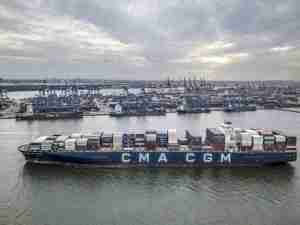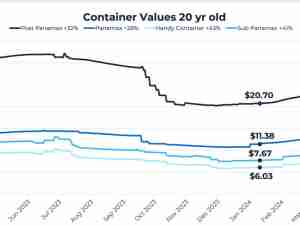From Argentinean olive oil to tuna from Thailand, Supervalu International brings the flavors of the world to the local grocery store ' whether it's the corner market or the super-store ' in nearly any spot on the globe. What started out in 1985 at the former location of Tacoma's West Coast Grocery (WCG) as a four-person international distributorship has grown into a leading exporter and importer of recognized food brands, private labels and general merchandise. Last summer, SUPERVALU International celebrated its 20th anniversary.
'In the broader food industry, only large manufacturers or small- to medium-size trading companies were involved in international trade,' explains Charles Witzleben, President of SUPERVALU's International Division. 'We've been able to operate with the speed and efficiency of a smaller trading company, but with the resources and clout of a large Fortune 100 company.'
This was no small entrepreneurial startup. All along, it had the backing of 135-year-old SUPERVALU, Inc., the nation's largest publicly held distributor to grocery retailers, which now supplies more than 4,000 stores around the country.
On June 2, SUPERVALU announced that it completed the merger to acquire the premier retail properties of Albertson's, Inc., which include the operations of Acme Markets, Bristol Farms, Jewel, Shaw's Supermarkets, Star Markets, and Albertsons banner stores in the Intermountain West, Northwest and Southern California regions.
The company's purchase of Albertsons' 1,124 stores triples the firm's retail operations and makes SUPERVALU the nation's second largest supermarket chain.
In the beginning, it was a marriage of convenience. 'West Coast Grocery already had an export business -up and running and Supervalu didn't offer that service. Supervalu acquired WCG in 1985, so we quickly absorbed the operation,' said Witzleben. 'We became the international business for the whole company.'
Today, among grocery and large retail operations, SUPERVALU remains in a class by itself. 'Most large retailers and wholesalers still focus on the US market,' Witzleben said. 'Two exceptions are Wal-Mart and Costco, but their approach internationally is going overseas and opening up stores. We're focused on directly supporting overseas retailers with mostly US products.'
It works like this: SUPERVALU International is like a colossal consumer, and they roll their giant grocery cart down the world's aisles, choosing from well-known brands, general merchandise, health and beauty products, frozen, deli, bakery, dairy and meat products. Some of this bounty winds up on the grocery shelves of their domestic customers, which now includes 1,500 company-owned stores and approximately 2,500 more independent retailers. This category is 30% of the division's business, but could increase dramatically if the planned Alberton's purchase goes through. SUPERVALU International exports a whopping 70% of this giant daily shopping trip to customers across the entire Pacific Rim.
'If we're working directly with a large retail chain in Hong Kong, for example, every week we'll have containers going out to them with a highly complex mix of products ' an inventory restocking,' explained Witzleben. 'We do the same with frozen foods maybe every three weeks.
We will also have weekly airfreight shipments on short shelf life items, like yogurt and cheeses. Mixed in with that, we're probably also shipping full containers of one product such as a new beverage or snack item on which they're running a promotion.'
High demand for US products keeps SUPERVALU International's several thousand estimated containers per year flowing through the Port of Tacoma, primarily on Hyundai, Evergreen, Maersk and Yang Ming vessels. During the past five years, exports have increased by approximately 35% and imports by 65%.
More than 90% of the company's imported food and general merchandise comes through Tacoma. Much of that is destined for locations around the northern tier and upper Midwestern section of the








